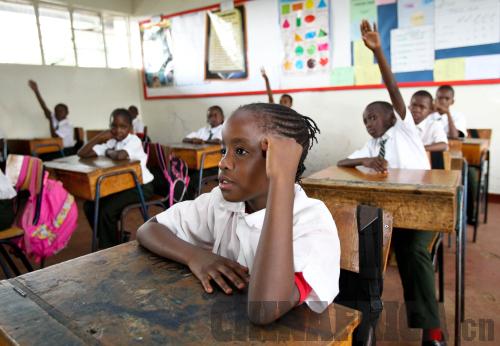| 
Africa needs an indigenous knowledge-based curriculum
Africa's investment in education is growing - perhaps a little-known fact for many. This is borne out by several studies. One of them, a UNESCO report, shows Sub-Saharan Africa spends 5 percent of its GDP on education, second only to North America and Europe at 5.3 percent. A country like Rwanda invests 22.1 percent of its annual budget in education, which is beyond the recommended budget allocation of 20 percent by the Education for All - Fast-Track Initiative [a global drive launched in 2002 to encourage low-income countries to develop national education plans and now called the Global Partnership for Education].
However, despite heavy investment in education by governments, donors, citizens and the private sector, the majority of the beneficiaries of Africa's education system are lacking in the fundamental hard and soft skills necessary for the thriving of a home-grown, indigenous knowledge-based production base. There is also the absence of a well-equipped mass of citizens who can navigate and negotiate the growing influx of foreign direct investment into Africa in such a way that the continent will benefit maximally. There is need, therefore, to explore Africa's investment in education, particularly in the learning content or curriculum, and its relation to the social and economic advancement.
At the foundation of Africa's human resource challenge is that investment in Africa's education has focused on structural and infrastructural needs. Minimum resources have been channeled toward searching out and developing an appropriate home-grown and indigenous knowledge-based curriculum. In several First World nations, a well-grounded curriculum, founded on local realities or indigenous knowledge, has been instrumental in entrenching creativity, innovation and an entrepreneurial mindset among the populace. In Sub-Saharan Africa conversely, the curriculum has not fundamentally changed from the Eurocentric philosophy bequeathed by colonialism. The implication is that learning content in Africa is often an abstraction, and does not readily entrench deep learning, a prerequisite for innovation.
Appropriate curriculum is foundational in determining the learning outcome and should be central to any effort at improving education quality. Most often, however, studies and funding for education focus on the rate of enrollment, pupil-to-teacher ratio, and access to infrastructure. The lack of far-reaching and sustained investment in curriculum in Sub-Saharan Africa has led to ineffective learning and stunted individual and national growth. African learners grapple with a sense of mental displacement, inability to apply classroom lessons, or tackling environmental challenges.
It has been established that an indigenous knowledge-based curriculum is foundational in entrenching creativity, innovation, values and a commitment to national vision that is based on the collective aspirations of society. In countries like Canada, Japan, China and Singapore, an emphasis on indigenous knowledge-based education, including the use of the mother tongue in teaching and learning, has resulted in societal transformation at very advanced levels.
Curriculum development in much of Africa south of the Sahara, as in other parts of previously colonized places, was established on the whims of colonial authorities. Colonial education curriculum neither aimed to instill innovation, creativity nor mental curiosity and assertion, but rather strove to create a class of subservient Africans equipped to engage in lower-level administrative, clerical and sundry tasks. In former colonies like India, however, the demand for independence was preceded by an awareness of the critical need to transform the curriculum of teaching and learning in order to emphasize authentic Indian experiences and realities.
[Indian independence movement leader] Mahatma Gandhi, emphasizing the need for originality in Indian education, noted that "the curriculum and pedagogic ideas which form the fabric of [India's] modern education were imported from Oxford and Cambridge, Edinburgh and London. But they are essentially foreign, and till they are repudiated, there never can be national education." Gandhi's effort can be said to be instrumental in the progress made by India as a former colonized entity in more recent times. On the part of formerly colonized Sub-Saharan African nations, very little has been done by way of transforming the curriculum to reflect authentic African experiences. Since independence, there has been a challenge to integrate Africa's realities in the curriculum development process and overall education quality. The end result is the persistent struggle among so-called educated Africans to aptly apply their knowledge to address the continent's unique challenges.
There is the need, therefore, for ownership of Africa's curriculum development and review processes by Africans, using African-generated realities in order to ensure learning outcomes that will impact on individual and national advancement. A good way to start is by an extensive review of curricula across the continent. African realities, contribution and philosophy in different subject areas must be acknowledged as foundational in the curriculum development exercise. Across all fields, mathematics, veterinary medicine, architecture, pharmacology, medicine, agriculture, politics and governance, the opportunities are endless for an exploration of Africa's own contribution to knowledge toward widespread innovation and accelerated development.
(Chika Ezeanya holds a Ph.D. in African Development and Policy Studies from Howard University in Washington D.C. Follow her on chikaforafrica.com and facebook.com/chikaforafrica.) |